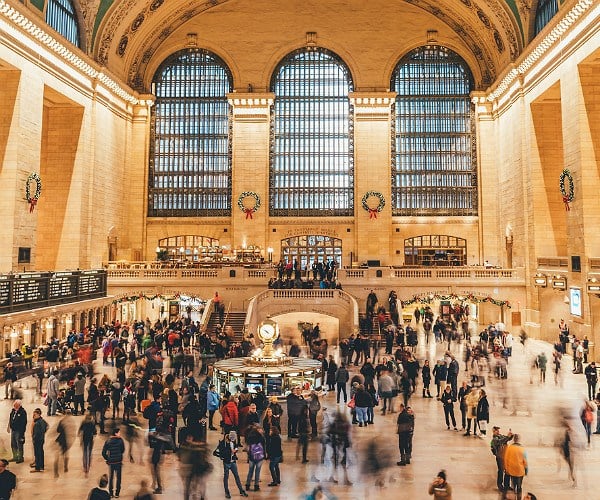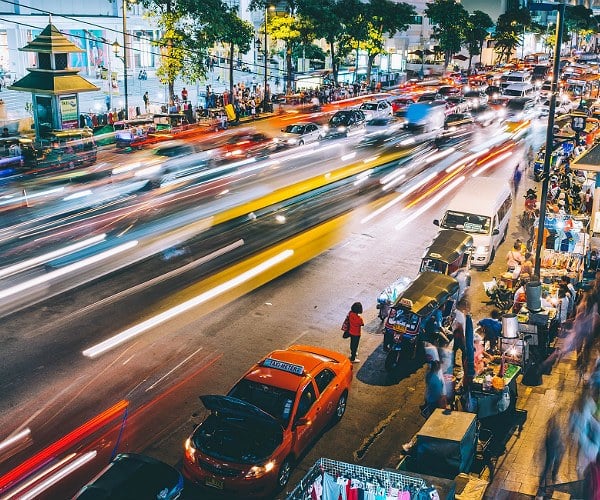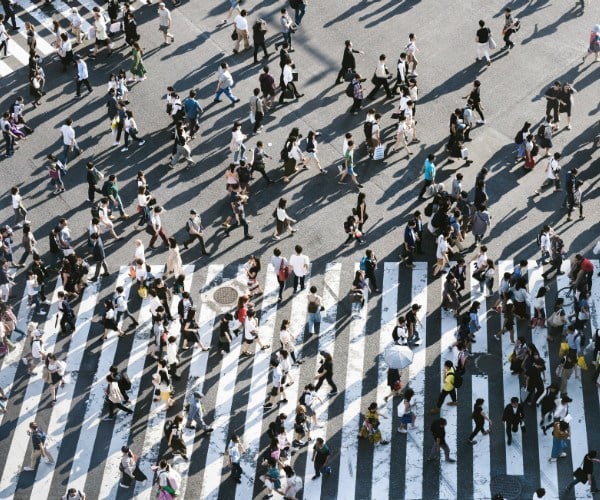Has global tourism peaked, at least for now?
Global tourism has risen dramatically since the end of the second World War. In 1950, according to the United Nations World Tourism Organization (UNWTO), there were just 25 million international tourist arrivals. By 2019, the same body reported that there were 1.5 billion international tourist arrivals – an increase of 4% on the previous year – with the same increase forecast for 2020.
 Of course, though, with subsequent developments with the outbreak of the coronavirus, that prediction already seems unlikely. I have already read many accounts of people cancelling trips and, at this point in time, it’s hard to envisage that major events such as the Tokyo 2020 Olympics are going to get quite the same number of international visitors as they would have achieved without the current health scare. It is still 150 days away, so a lot could change, but the likelihood is that the current outbreak will get worse before it gets better.
Of course, though, with subsequent developments with the outbreak of the coronavirus, that prediction already seems unlikely. I have already read many accounts of people cancelling trips and, at this point in time, it’s hard to envisage that major events such as the Tokyo 2020 Olympics are going to get quite the same number of international visitors as they would have achieved without the current health scare. It is still 150 days away, so a lot could change, but the likelihood is that the current outbreak will get worse before it gets better.
 In recent years, luxury tourism has thrived also, outpacing general tourism. According to figures released by Statista, the global luxury tourism market generated $831 billion in 2019. By 2026 it is expected to be worth $1.6 trillion according to a new report published by Allied Market Research. Whilst the compound annual growth rate of tourism is generally around 6.4%, the luxury segment is higher at 7.3%.
In recent years, luxury tourism has thrived also, outpacing general tourism. According to figures released by Statista, the global luxury tourism market generated $831 billion in 2019. By 2026 it is expected to be worth $1.6 trillion according to a new report published by Allied Market Research. Whilst the compound annual growth rate of tourism is generally around 6.4%, the luxury segment is higher at 7.3%.
 With seventy years of steady growth, it begs the question “when will we reach peak global tourism?”. Is this trend set to continue for the foreseeable future, but perhaps with occasional blips along the way, or is it the case that in an age of flight shame, overtourism, climate change and the threat of global pandemics such as the coronovirus, that global tourism has perhaps finally reached its peak?
With seventy years of steady growth, it begs the question “when will we reach peak global tourism?”. Is this trend set to continue for the foreseeable future, but perhaps with occasional blips along the way, or is it the case that in an age of flight shame, overtourism, climate change and the threat of global pandemics such as the coronovirus, that global tourism has perhaps finally reached its peak?
 Or is it the case that, with a seemingly ever-rising population, an increase in the mobility of middle classes, particularly in countries like China and India, the affordability of travel and the impact of social media reinforcing people’s desire to travel, that we can expect the global tourism explosion to simply continue unabated?
We welcome your comments on what you think the future holds for both the global tourism industry and, more specifically, luxury tourism globally.
Or is it the case that, with a seemingly ever-rising population, an increase in the mobility of middle classes, particularly in countries like China and India, the affordability of travel and the impact of social media reinforcing people’s desire to travel, that we can expect the global tourism explosion to simply continue unabated?
We welcome your comments on what you think the future holds for both the global tourism industry and, more specifically, luxury tourism globally.
 Of course, though, with subsequent developments with the outbreak of the coronavirus, that prediction already seems unlikely. I have already read many accounts of people cancelling trips and, at this point in time, it’s hard to envisage that major events such as the Tokyo 2020 Olympics are going to get quite the same number of international visitors as they would have achieved without the current health scare. It is still 150 days away, so a lot could change, but the likelihood is that the current outbreak will get worse before it gets better.
Of course, though, with subsequent developments with the outbreak of the coronavirus, that prediction already seems unlikely. I have already read many accounts of people cancelling trips and, at this point in time, it’s hard to envisage that major events such as the Tokyo 2020 Olympics are going to get quite the same number of international visitors as they would have achieved without the current health scare. It is still 150 days away, so a lot could change, but the likelihood is that the current outbreak will get worse before it gets better.
 In recent years, luxury tourism has thrived also, outpacing general tourism. According to figures released by Statista, the global luxury tourism market generated $831 billion in 2019. By 2026 it is expected to be worth $1.6 trillion according to a new report published by Allied Market Research. Whilst the compound annual growth rate of tourism is generally around 6.4%, the luxury segment is higher at 7.3%.
In recent years, luxury tourism has thrived also, outpacing general tourism. According to figures released by Statista, the global luxury tourism market generated $831 billion in 2019. By 2026 it is expected to be worth $1.6 trillion according to a new report published by Allied Market Research. Whilst the compound annual growth rate of tourism is generally around 6.4%, the luxury segment is higher at 7.3%.
 With seventy years of steady growth, it begs the question “when will we reach peak global tourism?”. Is this trend set to continue for the foreseeable future, but perhaps with occasional blips along the way, or is it the case that in an age of flight shame, overtourism, climate change and the threat of global pandemics such as the coronovirus, that global tourism has perhaps finally reached its peak?
With seventy years of steady growth, it begs the question “when will we reach peak global tourism?”. Is this trend set to continue for the foreseeable future, but perhaps with occasional blips along the way, or is it the case that in an age of flight shame, overtourism, climate change and the threat of global pandemics such as the coronovirus, that global tourism has perhaps finally reached its peak?
 Or is it the case that, with a seemingly ever-rising population, an increase in the mobility of middle classes, particularly in countries like China and India, the affordability of travel and the impact of social media reinforcing people’s desire to travel, that we can expect the global tourism explosion to simply continue unabated?
We welcome your comments on what you think the future holds for both the global tourism industry and, more specifically, luxury tourism globally.
Or is it the case that, with a seemingly ever-rising population, an increase in the mobility of middle classes, particularly in countries like China and India, the affordability of travel and the impact of social media reinforcing people’s desire to travel, that we can expect the global tourism explosion to simply continue unabated?
We welcome your comments on what you think the future holds for both the global tourism industry and, more specifically, luxury tourism globally.Did you enjoy this article?
Receive similar content direct to your inbox.


I think you pose some interesting concepts here based on the recent spreading of the Coronavirus. It’s almost unthinkable at how unpredictable it can be and should serve as a warning sign at how lucky most of us are when we get to travel abroad safely. The last paragraph felt like the crux of the issue as well, that there are other unknowns with rising middle-class peoples in countries that may have not had many travelers before the last two decades. I met a guy from Bangladesh on a plane from Moscow to Bangkok, and he told me he was visiting for only a day before flying to Turkey. In fact, I’m sitting on a beach right now in Vietnam and there are people here from Russia, Australia, and Europe. And the busy season here is a few months away. People who want to travel will definitely keep on traveling in the future, there’s no doubt about that.
Yes, Dave… I think there is no doubt about that, but I guess it’s whether the number of people that travel globally will continue to rise. Some studies predict that the global population will rise to well beyond 10 billion by the time we reach 2100 so, if the population keeps rising, perhaps the number of people that travel will also.
I really enjoyed each of the pictures on this post! Some really great shots. Made me want to travel myself. Travel photography, when done right, is always so beautiful and inspiring.
Very rarely is the future like the past. Although we like to extrapolate the past into the future it isn’t that simple. It’s all too easy to think that as tourism has grown over the last 70 years it will continue to do so.
I doubt that people will stop travelling or will significantly reduce their travel. What is more likely is that people will travel differently.
Flight shaming and concern about emissions are likely to encourage people to fly less. Slow travel by boat, horse or train is likely to be a growing market segment.
Last week there was a lot of media attention on the tendency for people to fly for hen and stag weekends. The writing is probably on the wall for a generation who fly off for the weekend. Dwindling bank balances and debt will probably convince them that such jet-setting is not sustainable.
Yes, the stag weekend thing is completely over the top. It looks as if in 2021 I could be invited on 5. They’re all trips with flights. I can’t afford all of them and I want to cut my carbon footprint too. It’s getting out of hand. But it’s going to be difficult turning down some good friends. For some of these weekends they are already talking of 3 nights away, not just a weekend, so it will eat up some of my annual leave too. Is it any surprise that people can’t afford their own place until they are in their thirties?
Re: flight shaming – maybe this will become less of an issue as the energy efficiency of aircraft is improved and as carbon-neutral aviation fuels are developed. Electric flights are another possibility one day, but only for very small planes at this point in time.
Is this paragraph correct?
“According to figures released by Statista, the global luxury tourism market generated $831 billion in 2019. By 2026 it is expected to be worth $1.6 billion according to a new report published by Allied Market Research.”
Maybe it’s me just getting confused, I’ve never been too hot with numbers, but that actually looks like a big decrease to me?
Sorry, that second figure should say $1.6 trillion. I’ll go and edit it now.
If we’re just talking the compound annual growth of 7.3% – and if I’ve got my maths right – we’re looking at:
2019 -> 2020 – additional $60.7bn -> $891.7 bn
2020 -> 2021 – additional $65.1bn -> $956.8 bn
2021 -> 2022 – additional $69.8bn -> $1,026.6 bn
2022 -> 2023 – additional $74.9bn -> $1,101.5 bn
2023 -> 2024 – additional $80.4bn -> $1,181.9 bn
2024 -> 2025 – additional $86.3bn -> $1,268.2 bn
2025 -> 2026 – additional $92.6bn -> $1,360.8 bn
By end 2026 – additional $99.3bn -> $1,460.1 bn
…so just short of the predicted $1.6 trillion. I’ve seen some predictions even claim that it will be worth more than $2.5 trillion by 2025.
Whichever figure you take, it would suggest that the luxury travel industry is continuing to prosper, in the short term at least.
There’s not much doubt that the Coronavirus will depress the travel market for sometime to come. Already supply chains are being disrupted, take I – phones as an example. Some businesses will cut their employees hours, they will ease back on employing agency staff and there will sadly be redundancies too. Bonuses, commission and overtime will all be cut. That phrase “On Target Earnings” will be a concept from the past. All in all people will have less disposable income for 2020 and maybe into 2021 too. One of the luxuries they will have to foregoing will be travel. Expect more staycations, glamping and homeswaps – at least in the short term.
I think staycations in largely coronavirus-free countries are going to see a significant upturn for sure. And I think people are leaving booking trips until the very last minute, sitting on the fence to see what happens. I myself am hesitant about booking a couple of European flights at the moment. I’m supposed to be in Berlin next week and haven’t yet booked my return flight, and I’m supposed to be in Sicily the week after. Berlin is a major travel fair (ITB Berlin) which brings in people from all over the world. I heard that another business event being held in Frankfurt has already been postponed. As for Sicily, I’m having grave doubts whether that one can happen as a case was declared in Palermo today and that person had been in Sicily just prior. I think it’d be prudent just to hold fire for at least 48 hours therefore to see what the next couple of days brings in terms of news of the spread. Sadly, it’s very worrying times for so many people.
We will always have the rich, the super rich and the rest of us aspiring to be superior rich. It didn’t take Russia very long to move from communism to billionaires who can buy super yachts and football clubs.
If you take that as a fundamental then its likely that luxury travel will not only thrive but become even more luxurious. The super-super rich will always want to differentiate themselves from the merely super-rich, Whatever the economic circumstances there are always human beings who are able to prosper and feel that they deserve an uber-luxurious holiday.
Yes, very true… but the wealthy are arguably just as suspectible to viruses. (I say arguably because they can of course avoid crowds more easily, bypass busy airports and isolate themselves with only a handful of people on superyachts, etc.)
25 million to 1.5 billion, that’s a marked increased! Unsurprising though, travel has just become a lot more accessible to everyday folks thanks to social, financial and technological changes. And of course the internet, that’s made a massive difference to the travel and tourism industries, for companies and travellers alike. It’s things like Brexit that may skew things a little in some respects. I read before that travel from the UK to EU countries has declined slightly, probably because people don’t have a clue what’s going on or how Brexit will affect passports and visas and health insurance. Then as you say, Coronavirus isn’t going to help with travel or big events. It sounds like plenty of big tech exhibitions, even fashion events and sporting events, are being cancelled, not just in China but elsewhere too as the virus spreads. As for luxury tourism, I can see that continuing to boom.
Really good question of whether this is the peak and we’re now on the downwards slide. I don’t know. With finances getting worse for a lot of people, you’d imagine travel would be negatively impacted, but it’s not. I think as well with stress levels going up, people just want to escape. They want a little luxury, they want to use the independence they have to travel. It’s not just about broadening your horizons or having a good time anymore. I think a lot of folks just want to get away from the run of the mill, constantly connected and stressed out lifestyle, even if it’s just for a week.
I think the impact of Brexit on the global picture is likely to be quite small. The growth in global travel largely comes from places like China so something like the coronavirus is likely to have a vastly bigger impact, I think.
I’m not sure about the reference to finances getting worse for a lot of people either. I think much of the growth we’ve seen in the recent past has been down to growing affluence within middle classes of countries like China and India, as well as in other countries cross the world, that has facilitated them being able to travel.
This article was rather prophetic given there were very few COVID-19 cases in Europe at the time it was written. In February it was still very much regarded as a China issue. Makes you wonder whether Tokyo 2021 even has a chance of taking place.
And I’ve read some reports that claim we’ll be waiting until at least 2024 before we see any return to travel at anything like 2019 levels. Even that might be wishful thinking. It’s a very sad time – hopefully some sense of normalcy will return soon.